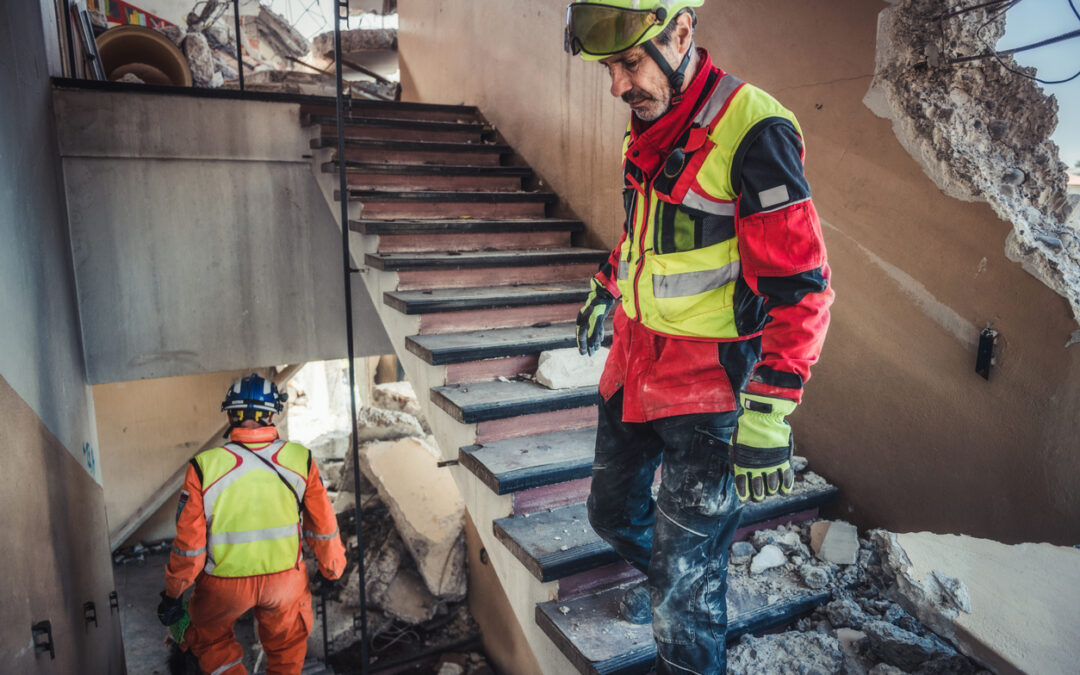In disaster recovery, navigating uncertainty is a constant challenge. With the increasing frequency and severity of natural disasters worldwide, the need for robust risk preparedness strategies has never been more critical. Disaster recovery consultants play a pivotal role in helping communities and organizations prepare for, respond to, and recover from disasters. In this blog, we will delve into the importance of preparedness for disaster recovery, explore the principles of prevention, preparedness, response, and recovery, discuss the role of disaster preparedness consultants, and highlight the significance of disaster risk reduction strategies.
Importance of Preparedness for Disaster Recovery
Preparedness is the cornerstone of effective disaster recovery. It encompasses a range of activities and measures undertaken to minimize the impact of disasters and facilitate swift and efficient recovery. By investing in preparedness efforts, communities, and organizations can reduce vulnerabilities, enhance resilience, and mitigate the devastating consequences of disasters. Preparedness initiatives may include developing emergency response plans, conducting risk assessments, training personnel, stockpiling essential supplies, and educating the public about disaster risks and protective measures.
Principles of Prevention, Preparedness, Response, and Recovery
The principles of prevention, preparedness, response, and recovery serve as the fundamental pillars of comprehensive disaster management. Each of these principles plays a crucial role in mitigating the impact of disasters and facilitating effective recovery efforts.
Prevention involves proactive measures aimed at reducing the likelihood and severity of disasters. This may involve implementing building codes to ensure structural resilience, engaging in land-use planning to minimize exposure to hazards, and adopting environmental conservation measures to protect natural resources and ecosystems. By addressing underlying risk factors and vulnerabilities, prevention initiatives help to create more resilient communities better equipped to withstand disasters.
Preparedness focuses on building the capacity and readiness to respond swiftly and effectively to disasters. This consists of training first responders and emergency personnel, establishing robust emergency communication systems, and conducting regular drills and exercises to test response capabilities. By investing in preparedness measures, communities can minimize loss of life and property damage during emergencies, and ensure a coordinated and efficient response effort.
Response encompasses the immediate actions taken to address the needs of affected individuals and communities during and immediately after a disaster. This may include deploying search and rescue teams to locate and evacuate survivors, providing medical assistance to the injured, and establishing temporary shelters to accommodate displaced residents. Response efforts are crucial in the initial stages of a disaster and play a vital role in saving lives and alleviating suffering.
Recovery involves the long-term process of rebuilding and restoring communities, infrastructure, and livelihoods in the aftermath of a disaster. This can include repairing damaged infrastructure such as roads, bridges, and utilities, implementing economic recovery programs to support businesses and industries affected by the disaster, and providing psychosocial support services to help individuals and communities cope with trauma and loss. Recovery efforts aim to restore normalcy and resilience to affected areas, allowing communities to rebuild stronger and more resilient than before the disaster struck.
Role of Disaster Preparedness Consultants
Disaster preparedness consultants play a crucial role in helping communities and organizations develop and implement effective preparedness plans and strategies. These consultants bring specialized knowledge and expertise in disaster management, risk assessment, and emergency planning to the table. They work closely with clients to identify hazards, assess vulnerabilities, and develop tailored preparedness initiatives that meet their specific needs and circumstances. Disaster preparedness consultants also provide training, technical assistance, and support to ensure that clients are well-equipped to respond to emergencies and mitigate risks effectively.
Significance of Disaster Risk Reduction Strategies
Disaster risk reduction (DRR) strategies aim to minimize the human, social, economic, and environmental impacts of disasters by reducing vulnerabilities and strengthening resilience. These strategies encompass a range of measures aimed at addressing underlying risk factors, such as poverty, inequality, and environmental degradation, and building adaptive capacity to cope with and recover from disasters. Disaster risk reduction strategies may include land-use planning, ecosystem restoration, early warning systems, community-based disaster risk management initiatives, and public awareness campaigns. By integrating DRR into disaster recovery planning and implementation, communities and organizations can enhance their resilience and minimize the likelihood and severity of future disasters.
Partners in Disaster Recovery
Navigating uncertainty in disaster recovery requires a proactive and multi-faceted approach to risk preparedness. By prioritizing preparedness efforts, adhering to the principles of prevention, preparedness, response, and recovery, engaging the expertise of disaster preparedness consultants, and implementing effective disaster risk reduction strategies, communities, and organizations can build resilience and mitigate the impacts of disasters. As the global climate continues to change and natural hazards become more frequent and severe, investing in risk preparedness has never been more crucial. By working together and adopting a holistic approach to disaster management, we can better prepare for, respond to, and recover from the challenges posed by natural disasters and other emergencies.
At D.A. Lamont Consulting Services, we are dedicated to providing comprehensive disaster recovery solutions tailored to the unique needs of our clients. With a wealth of expertise in government, infrastructure, insurance, emergency management, sustainability, and resiliency, we are committed to guiding communities through all phases of disaster management. From proactive prevention measures to swift response efforts and long-term recovery planning, we stand ready to assist our clients in navigating uncertainty and building resilience in the face of disaster. Contact us today to learn more about how we can support your community’s preparedness and recovery initiatives.

